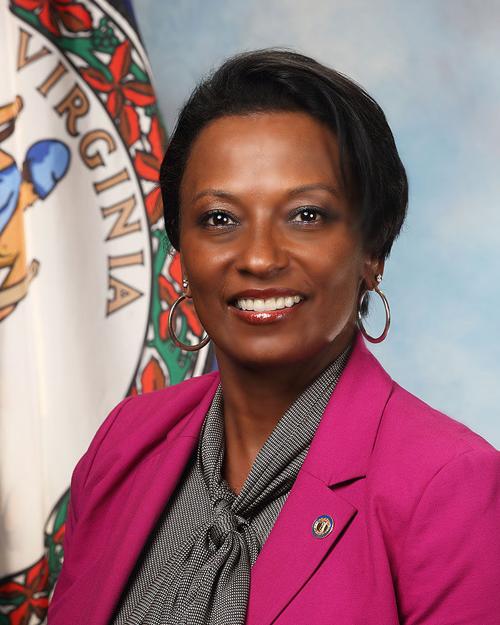News
Center for Public Policy Spotlight: Dietra Trent, Ph.D., Senior Director of Equity Research and Training

by Brittany Keegan
Throughout her career, Dietra Trent, Ph.D. has made it her mission to bring communities together in the pursuit of a more equitable and inclusive society.
When asked what made her choose to engage in this work, Trent didn’t hesitate in her response. As a public school teacher for 40 years, her grandmother not only made an incredible impact on her community, but she also motivated Trent to continue her efforts. “She was my teacher but she was also my mentor,” said Trent, “and so she believed that every child, if given the right opportunity, could succeed. She worked with high poverty kids in our communities – a lot of minority students.” Even in retirement, Trent’s grandmother continued to be a source of inspiration as she worked to develop new programs and identify new resources for children living in high poverty communities.
Trent received her MPA from VCU’s College of Humanities and Sciences (this program would later be housed within the Wilder School), and her Ph.D. in Public Policy and Administration from the Wilder School in 2007. Like her grandmother, she was interested in how public policies impacted students and others living in marginalized communities. She went on to serve as Director of Constituent Services and Director of the Council on Human Rights under Gov. Mark Warner, Deputy Secretary of Education under Gov. Tim Kaine, and Secretary of Education under Gov. Terry McAuliffe. In all of these positions, Trent witnessed the tremendous impact that public policies play in increasing, or reducing, opportunities for groups and individuals.
“I’ve been blessed to hold significant positions in three governors offices now,” said Trent, “and just seeing how policy has worked to either include or exclude individuals has fueled my passion around issues of equity.”
In April, Trent returned to the Wilder School as the Center for Public Policy’s (CPP) Senior Director of Equity Research and Training. Within this role, she leads the CPP’s efforts to engage in diversity- and equity-related research and training activities across the commonwealth. “I’m excited to really have an impact on policy and on the lives of those who need it the most,” said Trent, “The thing that I most appreciate about VCU is how they use the RVA region as laboratories to strengthen and improve upon its citizenry. Everyone benefits.” The region has become much stronger and better because VCU continues to grow and continues to give back to the community. Personally, I wanted to be a part of a university that is interested in complex relationship between practice, theory and research. VCU has a long history of analyzing those relationships and how they are influenced by political, economic, and social situations.
“We’re thrilled to have Dietra as a team member at the CPP,” said Robyn McDougle, CPP Director, “Along with the rest of the Wilder School, our research and programs aim to promote diversity, equity, and inclusion throughout the commonwealth and beyond. With her impressive background and her clear passion for community-building, Dietra is the perfect person to help us grow these efforts. We’re all excited to collaborate with her as we continue to work for positive change.”
While there’s no doubt that this work is important, it also comes with challenges. To some, Trent explained, terms such as “diversity” and “inclusion” have become overused to the point where they have little meaning. In other cases, those in power may see the promotion of diversity, equity, and inclusion as checkboxes – something to address and complete at a single point in time.
Instead, Trent believes that conversations lie at the heart of her work. Rather than focusing on an end goal, she focuses on the process of bringing people together. In turn, these conversations can bring about changes in our policies and programs.
“I’m excited about being at the forefront of framing a different conversation as it relate to our policies and how it impacts the communities that we serve and the most disadvantaged communities. [This work] is not just about changing policy. Policy needs to follow and policy will follow, but equity really is about: what are the conversations that need to be had in order to make the changes that need to be made?” said Trent.
As a starting point for policymakers, Trent suggests a reframing of questions asked when considering the impact of policies and programs. Rather than looking at issues from an external perspective, in which policymakers consider how to how to fix problems that individuals and groups are experiencing, Trent recommends an internal perspective. Using this frame, policymakers ask what impacts their policies and programs are having on individuals and groups, and what can be done to fix the policy. While progress is being made in this area, we still have a great deal of room for improvement.
To those interested in working to promote diversity, equity, and inclusion in our communities, Trent is encouraging. “First of all,” said Trent, “I would say please do [engage in this work]. There’s a lot of work out there, and when you look at our history we have centuries of policies in place that continue to have adverse impacts on our communities.”
Though it’s not an easy task, Trent is up for the challenge. Promoting equity, said Trent, “is about changing hearts and changing minds.” By bringing people together, having honest conversations, and truly listening to and understanding one another, we can work together to create a more equitable society.